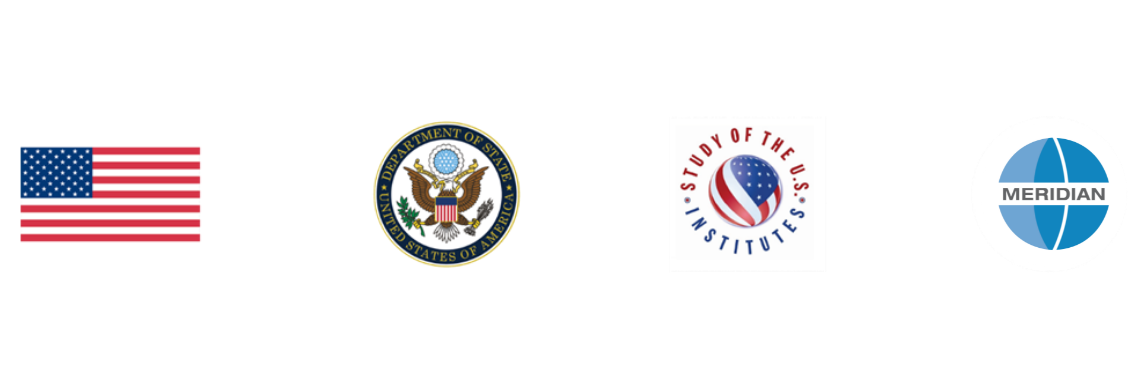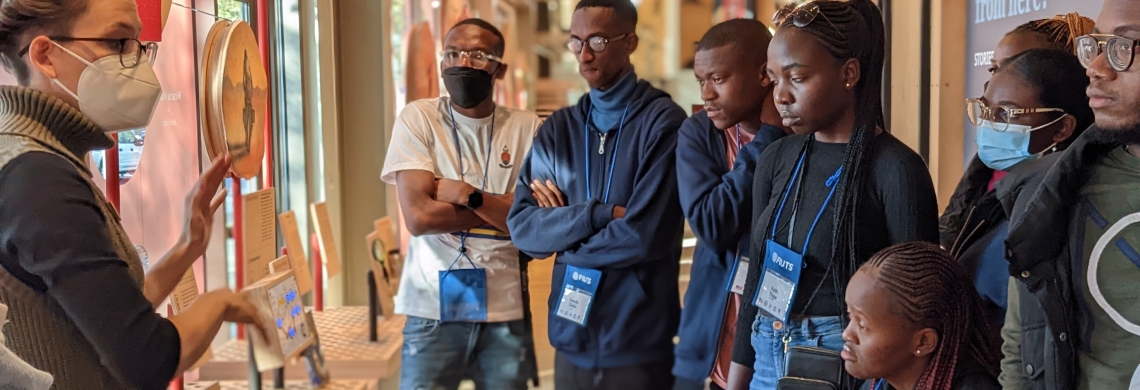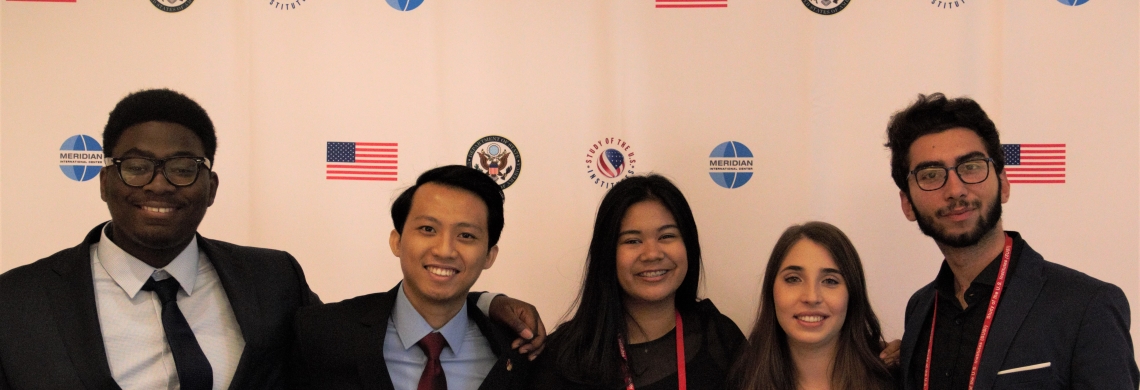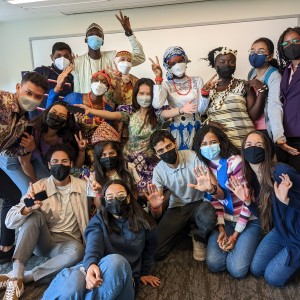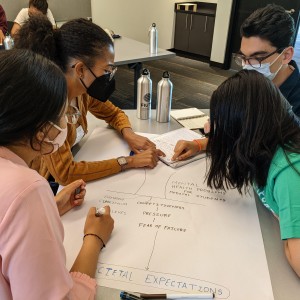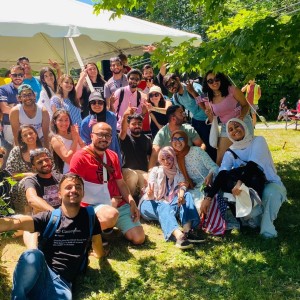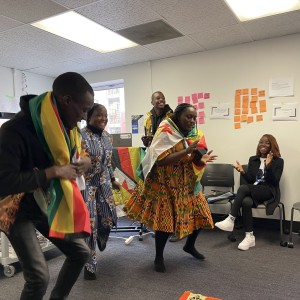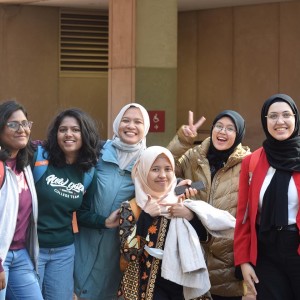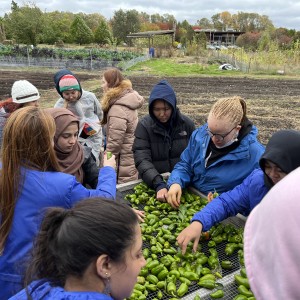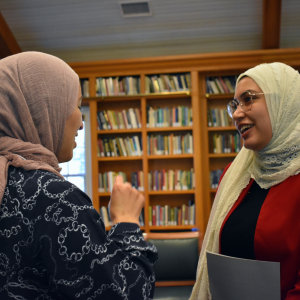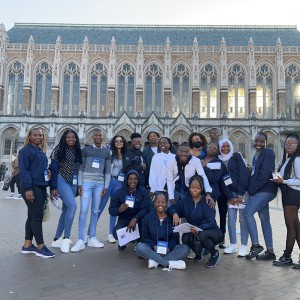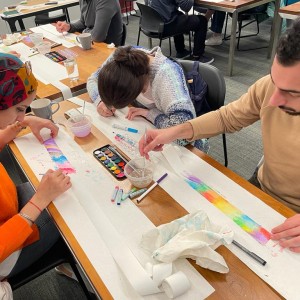Civic Engagement Month – Study of U.S. Institutes (SUSI) for Global Student Leaders Program
Study of the U.S. Institutes (SUSI) For Global Student Leaders
In partnership with the U.S. Department of State, Meridian International Center welcomes 100 international undergraduate student leaders each year to engage with U.S. culture and develop global leadership skills through the Study of U.S. Institutes (SUSI) for Global Student Leaders program. The SUSI program is founded on a belief in the unlimited potential of intercultural exchanges to promote leadership and entrepreneurship skills in young leaders. Through partnerships with four U.S. universities and a series of interactive classroom activities, community-based projects, and site visits to U.S. cities of all sizes, SUSI student leaders experience an in-depth investigation into program themes and enhance their understanding of American values.
Each SUSI for Global Student Leaders Institute includes a four-week intensive Academic Residency at a partner university, a Study Tour in a second city, and the development of Community Action Projects.
The four-week Academic Residency is aimed at deepening participants’ understanding of U.S. institutions and culture and empowering them to take action in their home communities. The Academic Residency is followed by a curated Study Tour highlighting diverse American communities as models of resiliency and thematic expertise in areas of interest to participants. During the SUSI program and with support from staff at the Institutes, each participant designs and plans a Community Action Project that employs what they learn from SUSI to create positive change in their home community. As SUSI alumni, participants are eligible to apply for grant opportunities to support the implementation of these projects.
SUSI Alumni Engagement
The SUSI experience does not end when participants return home. Meridian and university partners have developed a series of continuous mentorship, networking, and learning opportunities to transition participants to alumni, in addition to encouraging them to join the Department of State’s International Exchange Alumni network. Participants have many opportunities to stay connected with SUSI and other ECA alumni and Institute hosts as they use the knowledge gained during the program to give back to their communities. Upon return to their home countries, participants are eligible for post-program engagement opportunities to support ongoing leadership development and the implementation of Community Action Projects. In a continuous effort to support the SUSI alumni network, Meridian also offered an Alumni Support Grant in 2023 for selected alumni to further develop their Community Action Projects or begin a new community engaging initiative.
“The knowledge and insights that I gained through the program have been invaluable, and I feel more informed and empowered to make a positive impact in my community. The program has also allowed me to connect with people from different parts of the world and learn about their experiences and perspectives.” - Climate Change and the Environment Alum, Nigeria
Community Action Projects
Across all Institutes, participants are expected to produce a final Community Action Project. Parameters for the Community Action Projects are defined by each University and inspired by teachings, trainings, observations, and conversations each participant has during the Academic Residency and the Study Tour. The projects reflect and meet the social, economic, or other needs of participants’ home communities and allow the impact of the SUSI program to extend far beyond each individual’s time in the U.S.
Summer 2023 Academic Institutes
Meridian is excited to welcome students from around the world for five weeks of cross-cultural engagement and immersive learning across four different thematic Institutes:
Civic Engagement – University of Washington, Seattle
(Armenia, Azerbaijan, Georgia, Türkiye)
The primary goal of the Civic Engagement Institute is to engage young leaders in the practice of critical thinking to develop personal agency and clarity of vision. The academic program provides participants with the tools and understanding necessary to allow them to become engaged citizens and leaders in their own communities. Another goal of this Institute is to give participants opportunities to interact with people with a wide range of worldviews and experiences different from their own.
Climate Change & the Environment – University of Nevada, Reno
(Bangladesh, Brazil, Indonesia, Nigeria)
In this Institute, participants explore the impact of climate change and environmental justice. Participants are exposed to programming addressing sustainable development, pollution, ocean protection, and conservation. This Institute equips students with a strong foundation on the impact of climate change on underserved youth and minority populations and encourages them to bring what they learn into their own communities.
Economic Empowerment – University of Massachusetts, Amherst
(Algeria, Egypt, Jordan, Morocco, Tunisia)
Participants in this Institute are introduced to economic systems and the basics of entrepreneurship. The program highlights individual and group skills along with the necessary policies and practices that enable successful enterprises. The primary goal of the Institute is to ensure that participants not only develop an entrepreneurial spirit but also have the resources to encourage others to do the same. During the Institute, participants learn to discuss economic decisions made by U.S. authorities and citizens in an informed way.
Religious Diversity & Democracy – Temple University
(Egypt, India, Indonesia, Iraq, Lebanon)
This Institute focuses on the intersection of religious diversity and pluralism with American democracy. Participants engage in key topics including the separation of church and state, the First Amendment, past and current religious landscapes of the United States, interfaith dialogue in a democracy, conflict resolution, and how faith groups engage volunteerism in civil society. Throughout the Institute, participants use what they learn about religious diversity, democracy, and institutions in the U.S. as a starting point to engage in discussions of norms and institutions of religion in their own communities.
Highlights from Past Years
2023 Civic Engagement Academic Residency
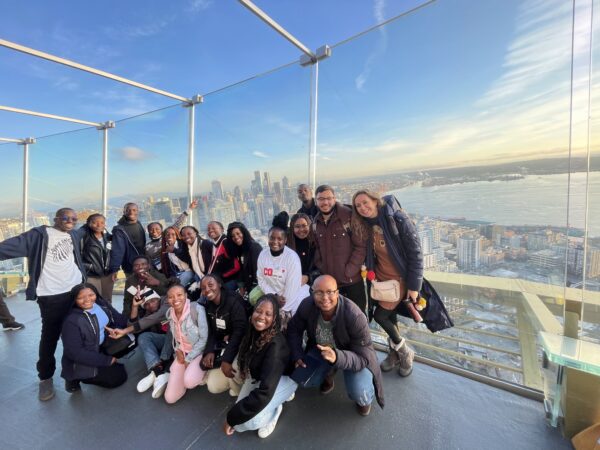
19 Global Student Leaders from Angola, Botswana, Mozambique, South Africa, and Zimbabwe embarked on their Academic Residency in collaboration with our partners, the Foundation for International Understanding Through Students in January and February. They convened at the University of Washington, Seattle, to explore the theme of Civic Engagement. Throughout their Academic Residency, the Student Leaders grew significantly by volunteering at food banks, interacting with local government officials and community leaders, and participating in classes dedicated to civic engagement. To conclude their journey, the participants partook in a Study Tour to Washington, D.C., where they further enhanced their understanding of civic engagement and American culture.
“The program has taught me the art of unity and teamwork. It has taught us how different types of leadership skills are all vital in our community. We are people from different cultures and background working on the same goal.” – AF Civic Engagement alum, Zimbabwe
Summer 2023 Academic Residency
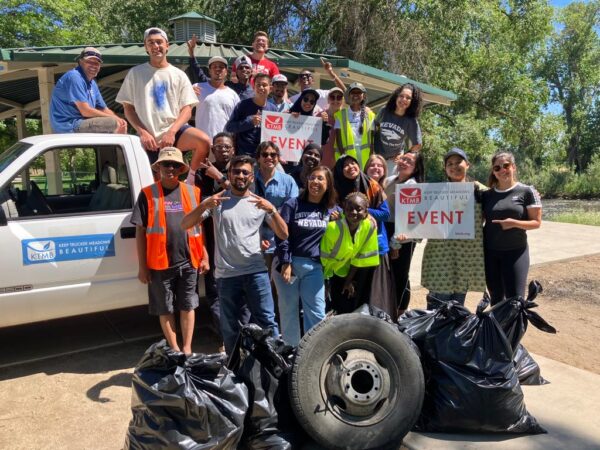
In June and July, Meridian and Institute Partners welcomed 80 students from 17 countries, where they delved into their specific topic themes and gained a deeper understanding of American values, fostering cross-cultural dynamics. The Student Leaders engaged in tailored academic classes, community service activities, and developed vital leadership and project planning skills. In the fifth and final week of the program, the participants embarked on a Study Tour to cities such as Kansas City, MO, New Orleans, LA, Detroit, MI, and Phoenix, AZ.
hear from the students Learn more“This program was genuinely a life-changing experience for me. Being able to immerse myself in the American lifestyle as a university student focused on economic empowerment provided excellent insights into the workings of American institutions and the American life.” – Economic Empowerment alum, Morocco
Study of the U.S. Institutes (SUSI) for Global Student Leaders is sponsored by the U.S. Department of State with funding provided by the U.S. Government and supported in its implementation by Meridian International Center.
